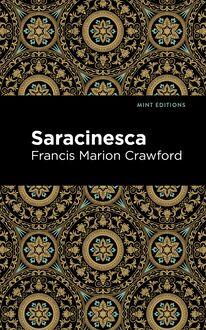-
 Univers
Univers
-
 Ebooks
Ebooks
-
 Livres audio
Livres audio
-
 Presse
Presse
-
 Podcasts
Podcasts
-
 BD
BD
-
 Documents
Documents
-
- Cours
- Révisions
- Ressources pédagogiques
- Sciences de l’éducation
- Manuels scolaires
- Langues
- Travaux de classe
- Annales de BEP
- Etudes supérieures
- Maternelle et primaire
- Fiches de lecture
- Orientation scolaire
- Méthodologie
- Corrigés de devoir
- Annales d’examens et concours
- Annales du bac
- Annales du brevet
- Rapports de stage
La lecture à portée de main
Vous pourrez modifier la taille du texte de cet ouvrage
Découvre YouScribe en t'inscrivant gratuitement
Je m'inscrisDécouvre YouScribe en t'inscrivant gratuitement
Je m'inscrisEn savoir plus
Vous pourrez modifier la taille du texte de cet ouvrage
En savoir plus

Description
Regarded as one of the author’s finest and most ambitious works, Bleak House all but overflows with the imaginative inventiveness unique to Dickens as it holds the reader fast to his most involved and involving plot.
First published in 1853, Bleak House is a Victorian epic with a court case of fiendish difficulty at its center. The legal system’s inability to resolve a will effects the lives of a broad swath of interconnected characters, revealing secrets and drawing out emotions ranging from selfless love to murderous hatred. The author mercilessly satirizes British law of his era while playing out a masterful chain of linked sub-plots. Esther Summerson, the only female narrator the author ever employed, is accompanied by a cavalcade of vivid, living characters as the story sweeps across Victorian society. Comic moments blend with tragic turns, hidden motives and relations come to light, and murder is committed before the question of inheritance is resolved. Arguably a proto-legal thriller and containing a genuine murder mystery, Bleak House is much more than that, and, in truth, much more than most any novel of its era.
With an eye-catching new cover, and professionally typeset manuscript, this edition of Bleak House is both modern and readable.
Sujets
Informations
| Publié par | Mint Editions |
| Date de parution | 06 octobre 2020 |
| Nombre de lectures | 0 |
| EAN13 | 9781513273068 |
| Langue | English |
| Poids de l'ouvrage | 1 Mo |
Informations légales : prix de location à la page 0,0850€. Cette information est donnée uniquement à titre indicatif conformément à la législation en vigueur.
Extrait
Bleak House
Charles Dickens
Bleak House was first published in 1853.
This edition published by Mint Editions 2020.
ISBN 9781513266046 | E-ISBN 9781513273068
Published by Mint Editions®
minteditionbooks.com
Publishing Director: Jennifer Newens
Project Manager: Gabrielle Maudiere
Design & Production: Rachel Lopez Metzger
Typesetting: Westchester Publishing Services
C ONTENTS I. I N C HANCERY II. I N F ASHION III. A P ROGRESS IV. T ELESCOPIC P HILANTHROPY V. A M ORNING A DVENTURE VI. Q UITE AT H OME VII. T HE G HOST ’ S W ALK VIII. C OVERING A M ULTITUDE OF S INS IX. S IGNS AND T OKENS X. T HE L AW -W RITER XI. O UR D EAR B ROTHER XII. O N THE W ATCH XIII. E STHER ’ S N ARRATIVE XIV. D EPORTMENT XV. B ELL Y ARD XVI. T OM - ALL -A LONE ’ S XVII. E STHER ’ S N ARRATIVE XVIII. L ADY D EDLOCK XIX. M OVING O N XX. A N EW L ODGER XXI. T HE S MALLWEED F AMILY XXII. M R . B UCKET XXIII. E STHER ’ S N ARRATIVE XXIV. A N A PPEAL C ASE XXV. M RS . S NAGSBY S EES I T A LL XXVI. S HARPSHOOTERS XXVII. M ORE O LD S OLDIERS T HAN O NE XXVIII. T HE I RONMASTER XXIX. T HE Y OUNG M AN XXX. E STHER ’ S N ARRATIVE XXXI. N URSE AND P ATIENT XXXII. T HE A PPOINTED T IME XXXIII. I NTERLOPERS XXXIV. A T URN OF THE S CREW XXXV. E STHER ’ S N ARRATIVE XXXVI. C HESNEY W OLD XXXVII. J ARNDYCE AND J ARNDYCE XXXVIII. A S TRUGGLE XXXIX. A TTORNEY AND C LIENT XL. N ATIONAL AND D OMESTIC XLI. I N M R . T ULKINGHORN ’ S R OOM XLII. I N M R . T ULKINGHORN ’ S C HAMBERS XLIII. E STHER ’ S N ARRATIVE XLIV. T HE L ETTER AND THE A NSWER XLV. I N T RUST XLVI. S TOP H IM ! XLVII. J O ’ S W ILL XLVIII. C LOSING I N XLIX. D UTIFUL F RIENDSHIP L. E STHER ’ S N ARRATIVE LI. E NLIGHTENED LII. O BSTINACY LIII. T HE T RACK LIV. S PRINGING A M INE LV. F LIGHT LVI. P URSUIT LVII. E STHER ’ S N ARRATIVE LVIII. A W INTRY D AY AND N IGHT LIX. E STHER ’ S N ARRATIVE LX. P ERSPECTIVE LXI. A D ISCOVERY LXII. A NOTHER D ISCOVERY LXIII. S TEEL AND I RON LXIV. E STHER ’ S N ARRATIVE LXV. B EGINNING THE W ORLD LXVI. D OWN IN L INCOLNSHIRE LXVII. T HE C LOSE OF E STHER ’ S N ARRATIVE
Chapter I
I N C HANCERY
London. Michaelmas term lately over, and the Lord Chancellor sitting in Lincoln’s Inn Hall. Implacable November weather. As much mud in the streets as if the waters had but newly retired from the face of the earth, and it would not be wonderful to meet a Megalosaurus, forty feet long or so, waddling like an elephantine lizard up Holborn Hill. Smoke lowering down from chimney-pots, making a soft black drizzle, with flakes of soot in it as big as full-grown snowflakes—gone into mourning, one might imagine, for the death of the sun. Dogs, undistinguishable in mire. Horses, scarcely better; splashed to their very blinkers. Foot passengers, jostling one another’s umbrellas in a general infection of ill temper, and losing their foot-hold at street-corners, where tens of thousands of other foot passengers have been slipping and sliding since the day broke (if this day ever broke), adding new deposits to the crust upon crust of mud, sticking at those points tenaciously to the pavement, and accumulating at compound interest.
Fog everywhere. Fog up the river, where it flows among green aits and meadows; fog down the river, where it rolls defiled among the tiers of shipping and the waterside pollutions of a great (and dirty) city. Fog on the Essex marshes, fog on the Kentish heights. Fog creeping into the cabooses of collier-brigs; fog lying out on the yards and hovering in the rigging of great ships; fog drooping on the gunwales of barges and small boats. Fog in the eyes and throats of ancient Greenwich pensioners, wheezing by the firesides of their wards; fog in the stem and bowl of the afternoon pipe of the wrathful skipper, down in his close cabin; fog cruelly pinching the toes and fingers of his shivering little ’prentice boy on deck. Chance people on the bridges peeping over the parapets into a nether sky of fog, with fog all round them, as if they were up in a balloon and hanging in the misty clouds.
Gas looming through the fog in divers places in the streets, much as the sun may, from the spongey fields, be seen to loom by husbandman and ploughboy. Most of the shops lighted two hours before their time—as the gas seems to know, for it has a haggard and unwilling look.
The raw afternoon is rawest, and the dense fog is densest, and the muddy streets are muddiest near that leaden-headed old obstruction, appropriate ornament for the threshold of a leaden-headed old corporation, Temple Bar. And hard by Temple Bar, in Lincoln’s Inn Hall, at the very heart of the fog, sits the Lord High Chancellor in his High Court of Chancery.
Never can there come fog too thick, never can there come mud and mire too deep, to assort with the groping and floundering condition which this High Court of Chancery, most pestilent of hoary sinners, holds this day in the sight of heaven and earth.
On such an afternoon, if ever, the Lord High Chancellor ought to be sitting here—as here he is—with a foggy glory round his head, softly fenced in with crimson cloth and curtains, addressed by a large advocate with great whiskers, a little voice, and an interminable brief, and outwardly directing his contemplation to the lantern in the roof, where he can see nothing but fog. On such an afternoon some score of members of the High Court of Chancery bar ought to be—as here they are—mistily engaged in one of the ten thousand stages of an endless cause, tripping one another up on slippery precedents, groping knee-deep in technicalities, running their goat-hair and horsehair warded heads against walls of words and making a pretence of equity with serious faces, as players might. On such an afternoon the various solicitors in the cause, some two or three of whom have inherited it from their fathers, who made a fortune by it, ought to be—as are they not?—ranged in a line, in a long matted well (but you might look in vain for truth at the bottom of it) between the registrar’s red table and the silk gowns, with bills, cross-bills, answers, rejoinders, injunctions, affidavits, issues, references to masters, masters’ reports, mountains of costly nonsense, piled before them. Well may the court be dim, with wasting candles here and there; well may the fog hang heavy in it, as if it would never get out; well may the stained-glass windows lose their colour and admit no light of day into the place; well may the uninitiated from the streets, who peep in through the glass panes in the door, be deterred from entrance by its owlish aspect and by the drawl, languidly echoing to the roof from the padded dais where the Lord High Chancellor looks into the lantern that has no light in it and where the attendant wigs are all stuck in a fog-bank! This is the Court of Chancery, which has its decaying houses and its blighted lands in every shire, which has its worn-out lunatic in every madhouse and its dead in every churchyard, which has its ruined suitor with his slipshod heels and threadbare dress borrowing and begging through the round of every man’s acquaintance, which gives to monied might the means abundantly of wearying out the right, which so exhausts finances, patience, courage, hope, so overthrows the brain and breaks the heart, that there is not an honourable man among its practitioners who would not give—who does not often give—the warning, “Suffer any wrong that can be done you rather than come here!”
Who happen to be in the Lord Chancellor’s court this murky afternoon besides the Lord Chancellor, the counsel in the cause, two or three counsel who are never in any cause, and the well of solicitors before mentioned? There is the registrar below the judge, in wig and gown; and there are two or three maces, or petty-bags, or privy purses, or whatever they may be, in legal court suits. These are all yawning, for no crumb of amusement ever falls from Jarndyce and Jarndyce (the cause in hand), which was squeezed dry years upon years ago. The short-hand writers, the reporters of the court, and the reporters of the newspapers invariably decamp with the rest of the regulars when Jarndyce and Jarndyce comes on. Their places are a blank. Standing on a seat at the side of the hall, the better to peer into the curtained sanctuary, is a little mad old woman in a squeezed bonnet who is always in court, from its sitting to its rising, and always expecting some incomprehensible judgment to be given in her favour. Some say she really is, or was, a party to a suit, but no one knows for certain because no one cares. She carries some small litter in a reticule which she calls her documents, principally consisting of paper matches and dry lavender. A sallow prisoner has come up, in custody, for the half-dozenth time to make a personal application “to purge himself of his contempt,” which, being a solitary surviving executor who has fallen into a state of conglomeration about accounts of which it is not pretended that he had ever any knowledge, he is not at all likely ever to do. In the meantime his prospects in life are ended. Another ruined suitor, who periodically appears from Shropshire and breaks out into efforts to address the Chancellor at the close of the day’s business and who can by no means be made to understand that the Chancellor is legally ignorant of his existence after making it desolate for a quarter of a century, plants himself in a good place and keeps an eye on the judge, ready to call out “My Lord!” in a voice of sonorous complaint on the instant of his rising. A few lawyers’ clerks and others who know this suitor by sight linger on the chance of his furnishing some fun and enlivening the dismal weather a little.
Jarndyce and Jarndyce drones on. This scarecrow of a suit has, in course of time, become so complicated that no man alive knows what it means. The parties to it understand it least, but it has been observed that no two Chancery lawyers can talk about it for five minutes withou
-
 Univers
Univers
-
 Ebooks
Ebooks
-
 Livres audio
Livres audio
-
 Presse
Presse
-
 Podcasts
Podcasts
-
 BD
BD
-
 Documents
Documents
-
Jeunesse
-
Littérature
-
Ressources professionnelles
-
Santé et bien-être
-
Savoirs
-
Education
-
Loisirs et hobbies
-
Art, musique et cinéma
-
Actualité et débat de société
-
Jeunesse
-
Littérature
-
Ressources professionnelles
-
Santé et bien-être
-
Savoirs
-
Education
-
Loisirs et hobbies
-
Art, musique et cinéma
-
Actualité et débat de société
-
Actualités
-
Lifestyle
-
Presse jeunesse
-
Presse professionnelle
-
Pratique
-
Presse sportive
-
Presse internationale
-
Culture & Médias
-
Action et Aventures
-
Science-fiction et Fantasy
-
Société
-
Jeunesse
-
Littérature
-
Ressources professionnelles
-
Santé et bien-être
-
Savoirs
-
Education
-
Loisirs et hobbies
-
Art, musique et cinéma
-
Actualité et débat de société
- Cours
- Révisions
- Ressources pédagogiques
- Sciences de l’éducation
- Manuels scolaires
- Langues
- Travaux de classe
- Annales de BEP
- Etudes supérieures
- Maternelle et primaire
- Fiches de lecture
- Orientation scolaire
- Méthodologie
- Corrigés de devoir
- Annales d’examens et concours
- Annales du bac
- Annales du brevet
- Rapports de stage




















